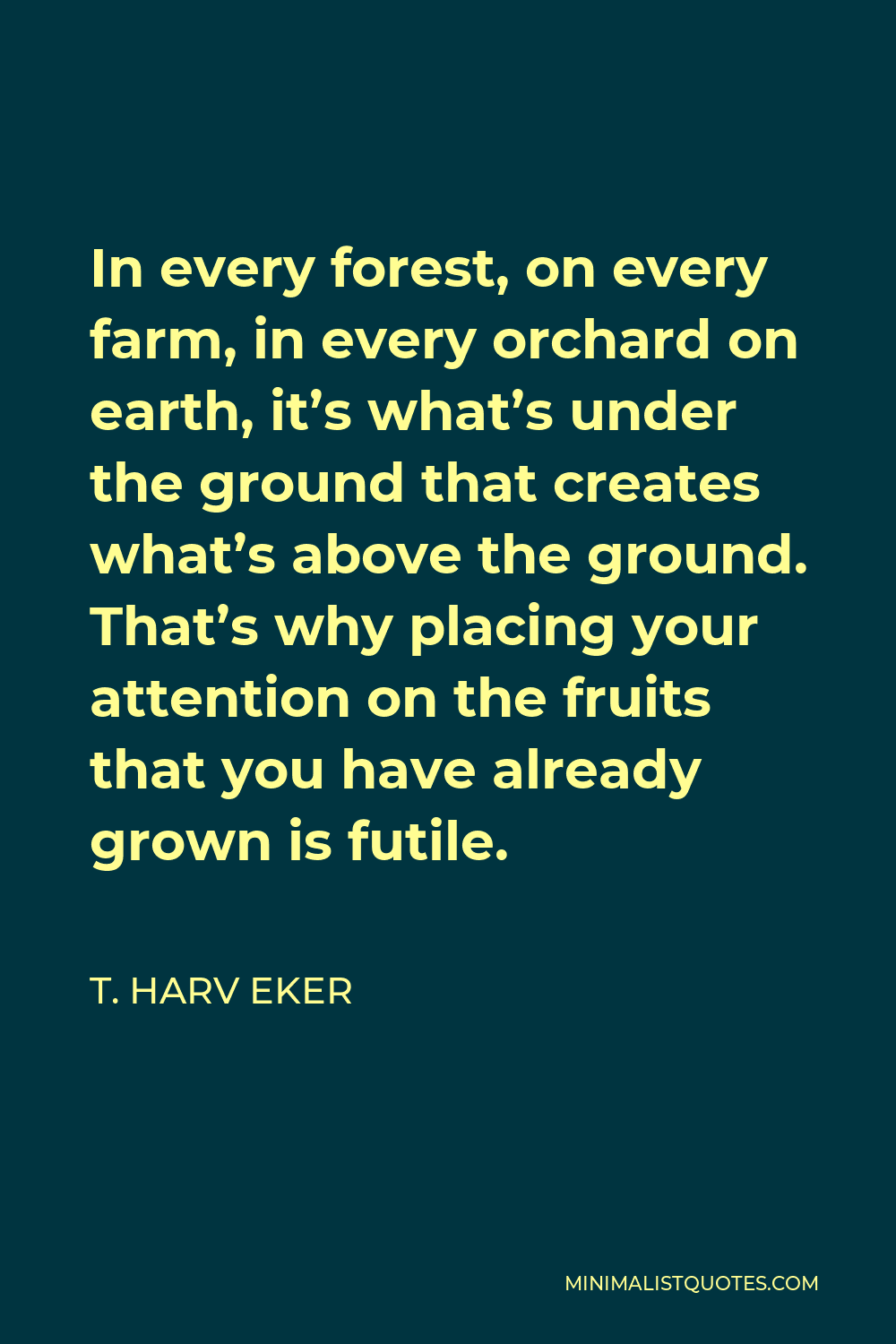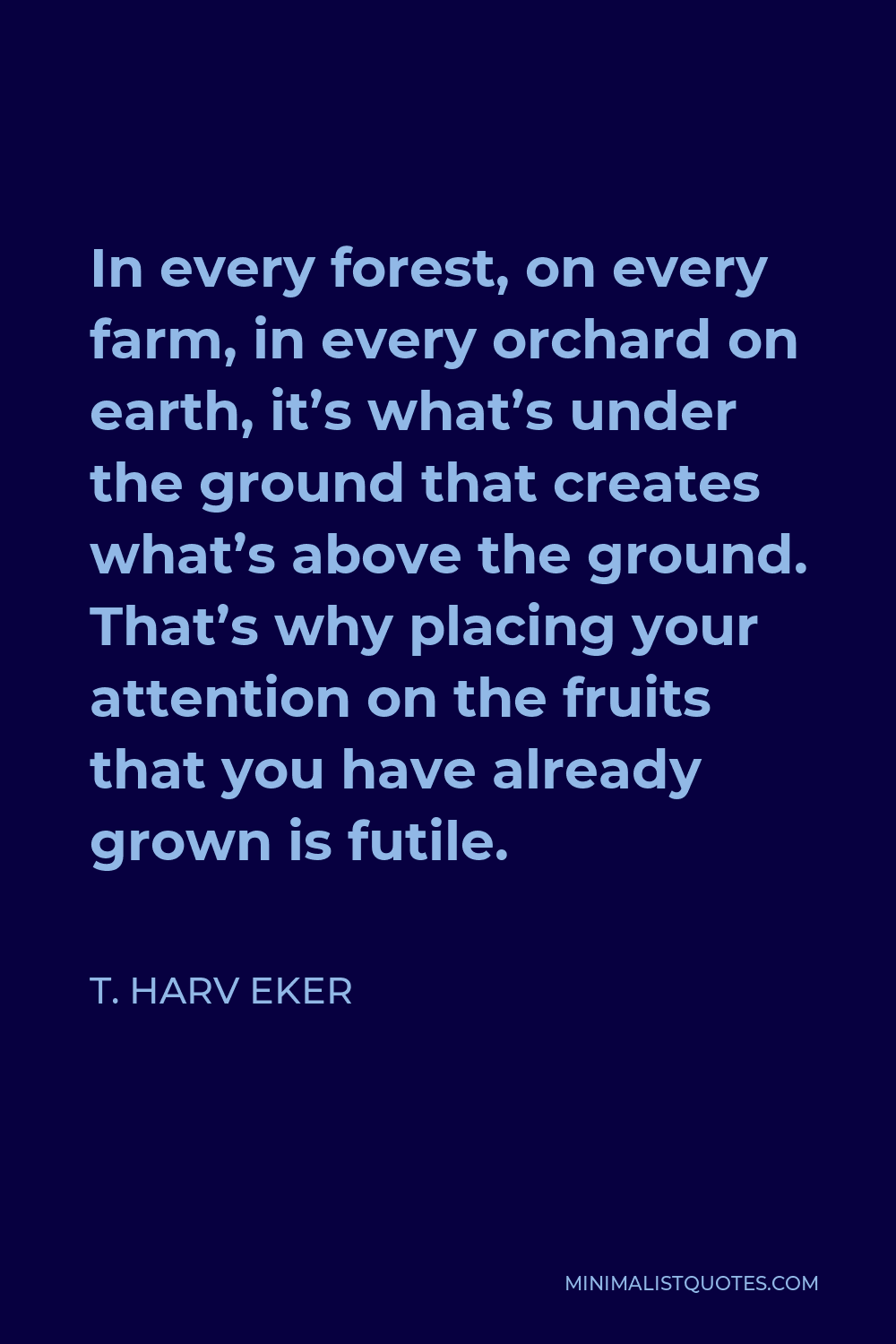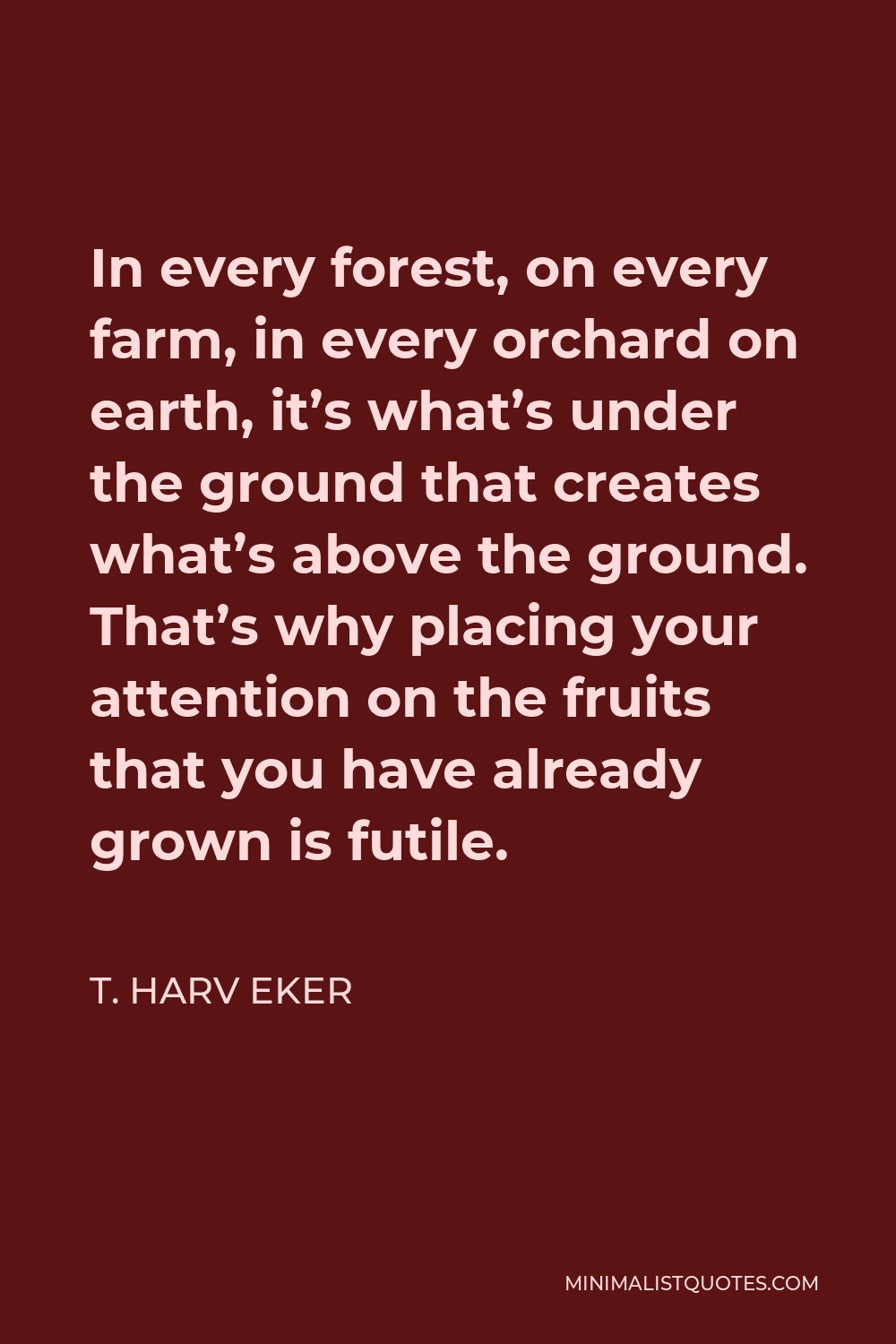Whenever you feel uncomfortable, instead of retreating back into your old comfort zone, pat yourself on the back and say, “I must be growing,” and continue moving forward.
T. HARV EKERIn every forest, on every farm, in every orchard on earth, it’s what’s under the ground that creates what’s above the ground. That’s why placing your attention on the fruits that you have already grown is futile.
More T. Harv Eker Quotes
-





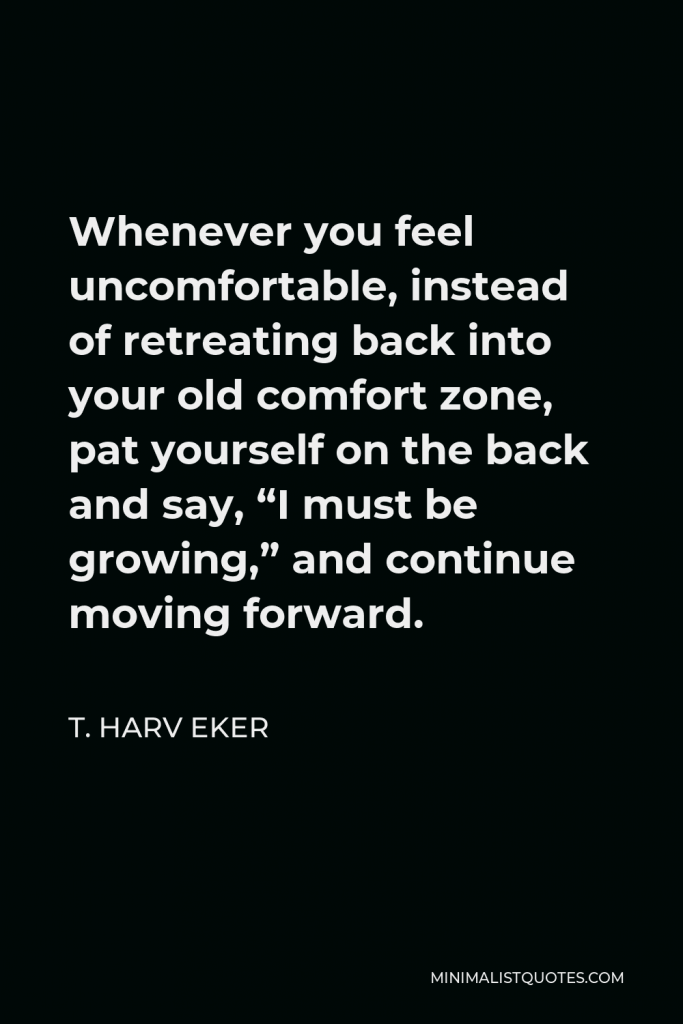

-





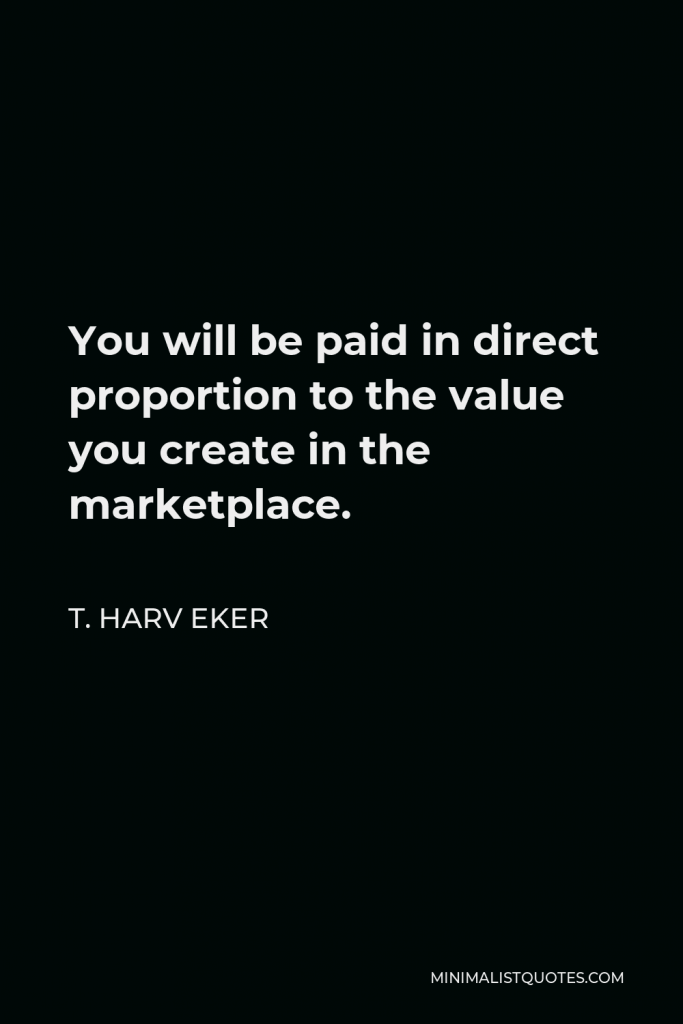

You will be paid in direct proportion to the value you create in the marketplace.
T. HARV EKER -





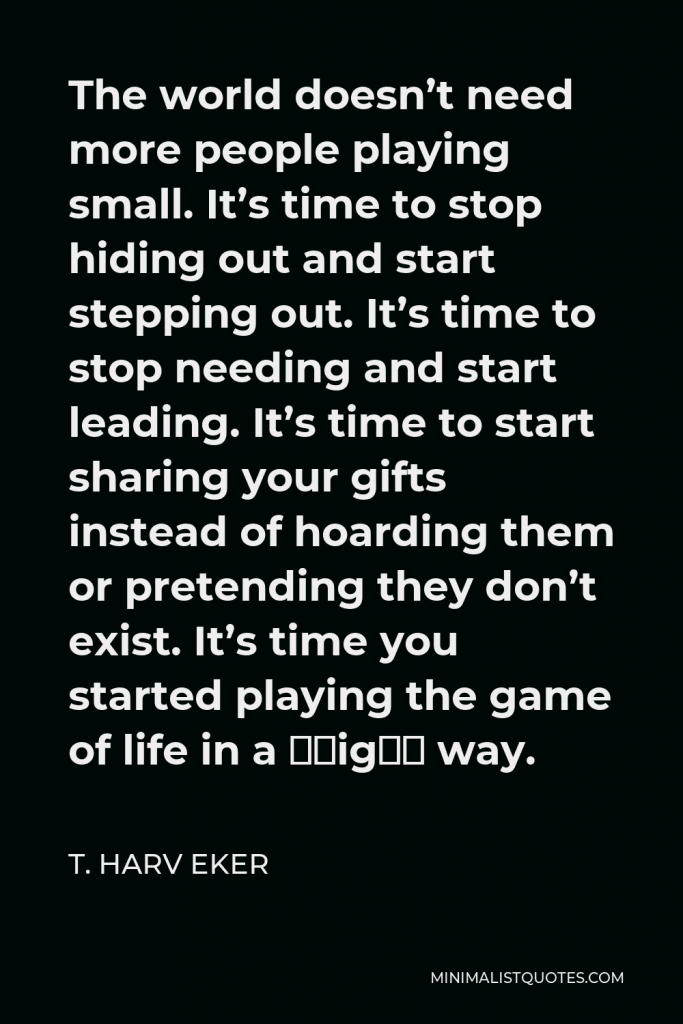

The world doesn’t need more people playing small. It’s time to stop hiding out and start stepping out. It’s time to stop needing and start leading. It’s time to start sharing your gifts instead of hoarding them or pretending they don’t exist. It’s time you started playing the game of life in a “big” way.
T. HARV EKER -





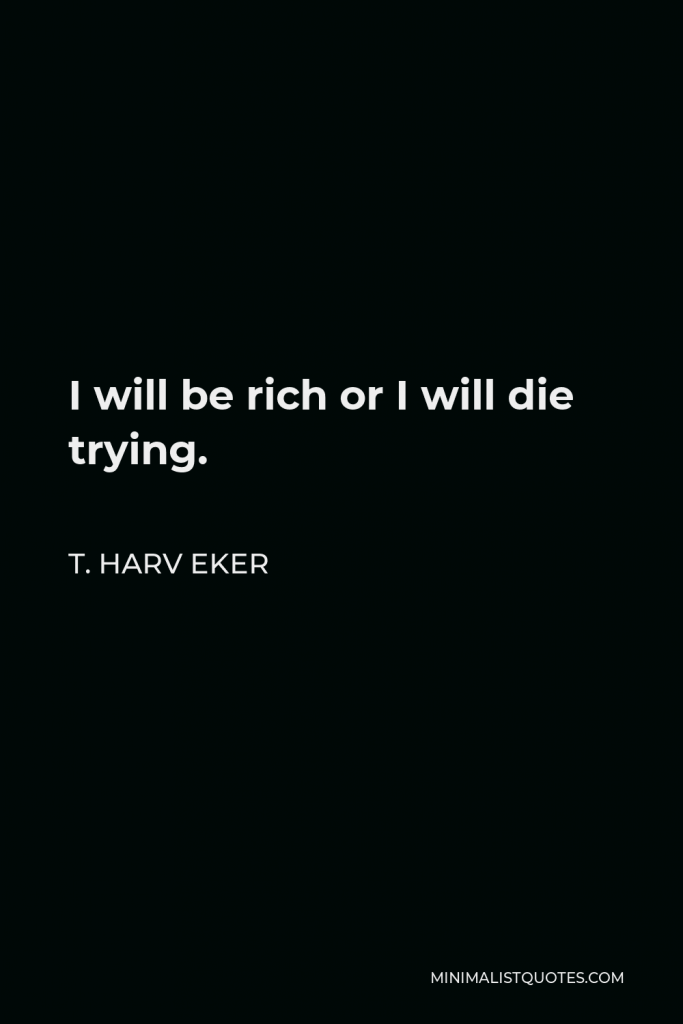

I will be rich or I will die trying.
T. HARV EKER -





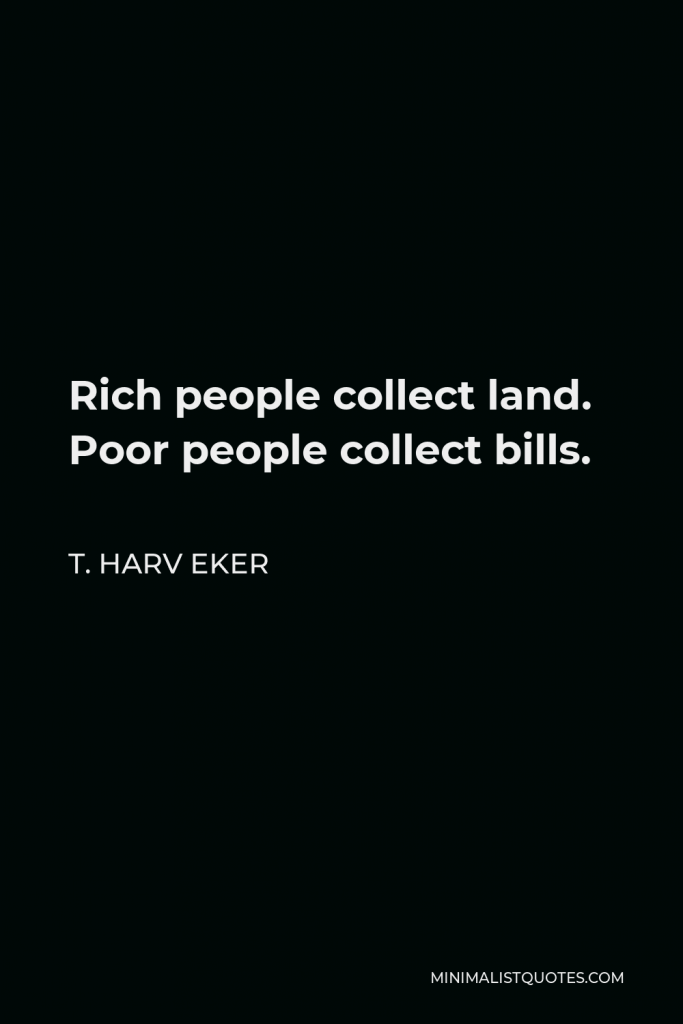

Rich people collect land. Poor people collect bills.
T. HARV EKER -





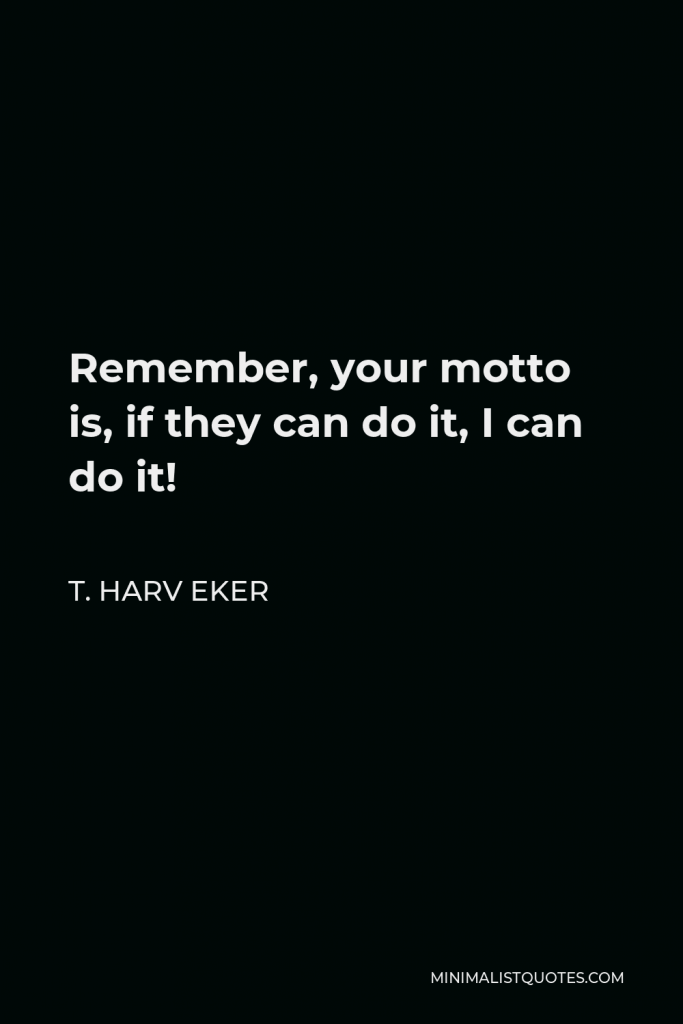

Remember, your motto is, if they can do it, I can do it!
T. HARV EKER -





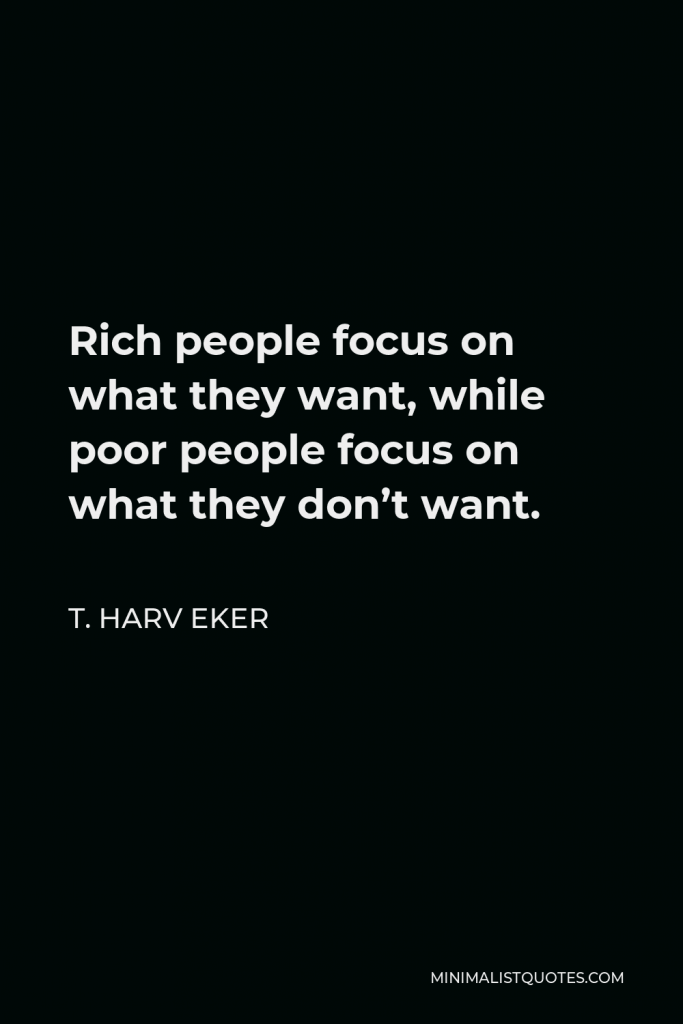

Rich people focus on what they want, while poor people focus on what they don’t want.
T. HARV EKER -





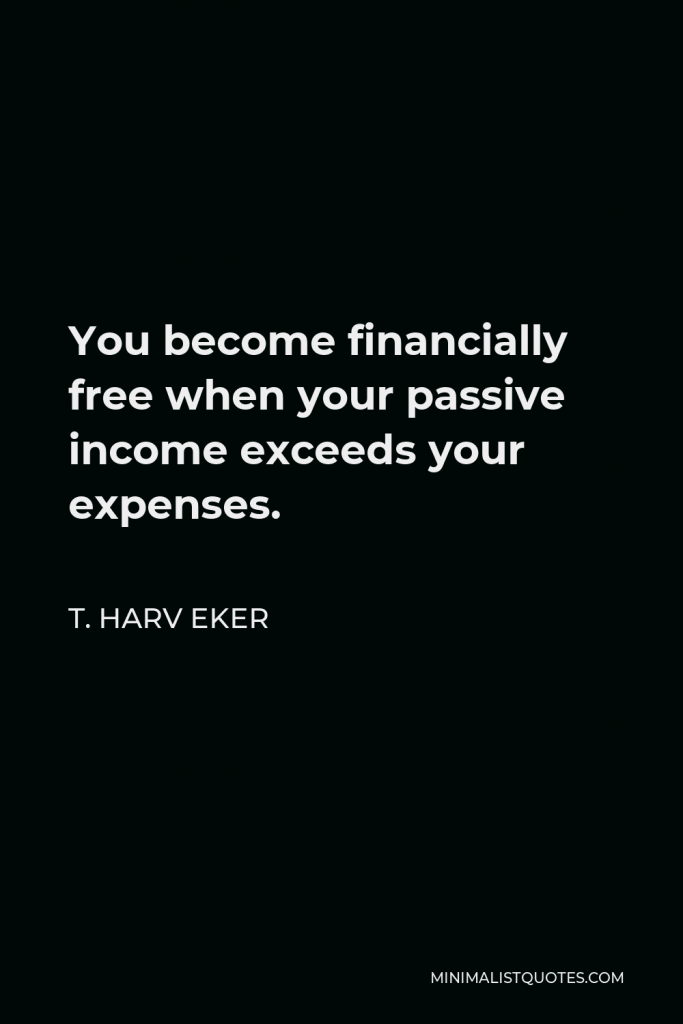

You become financially free when your passive income exceeds your expenses.
T. HARV EKER -





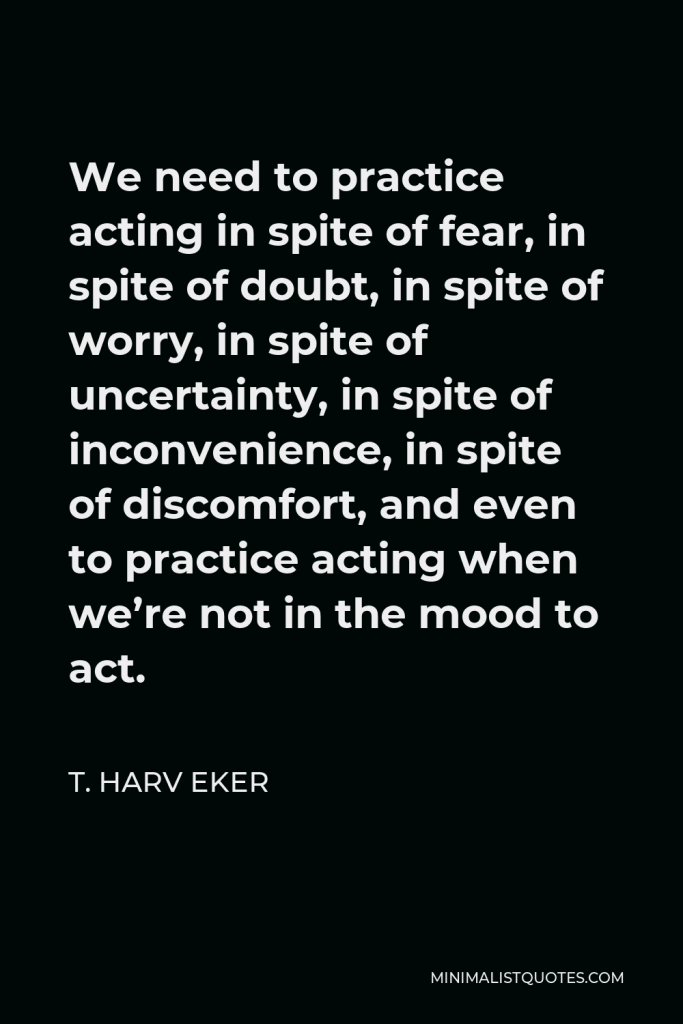

We need to practice acting in spite of fear, in spite of doubt, in spite of worry, in spite of uncertainty, in spite of inconvenience, in spite of discomfort, and even to practice acting when we’re not in the mood to act.
T. HARV EKER -





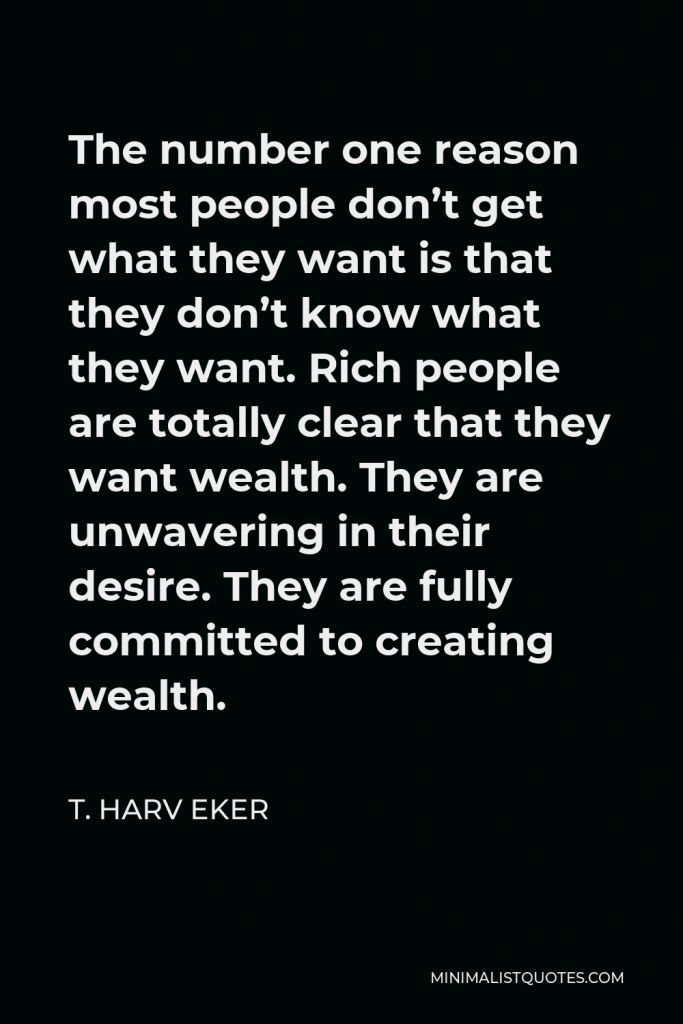

The number one reason most people don’t get what they want is that they don’t know what they want. Rich people are totally clear that they want wealth. They are unwavering in their desire. They are fully committed to creating wealth.
T. HARV EKER -





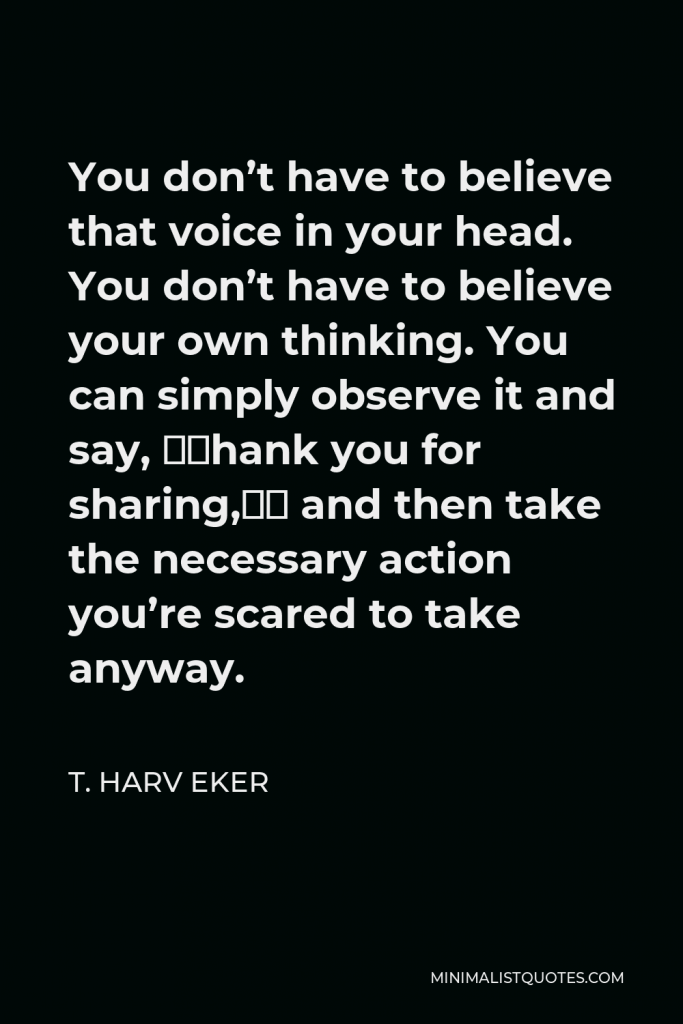

You don’t have to believe that voice in your head. You don’t have to believe your own thinking. You can simply observe it and say, “Thank you for sharing,” and then take the necessary action you’re scared to take anyway.
T. HARV EKER -





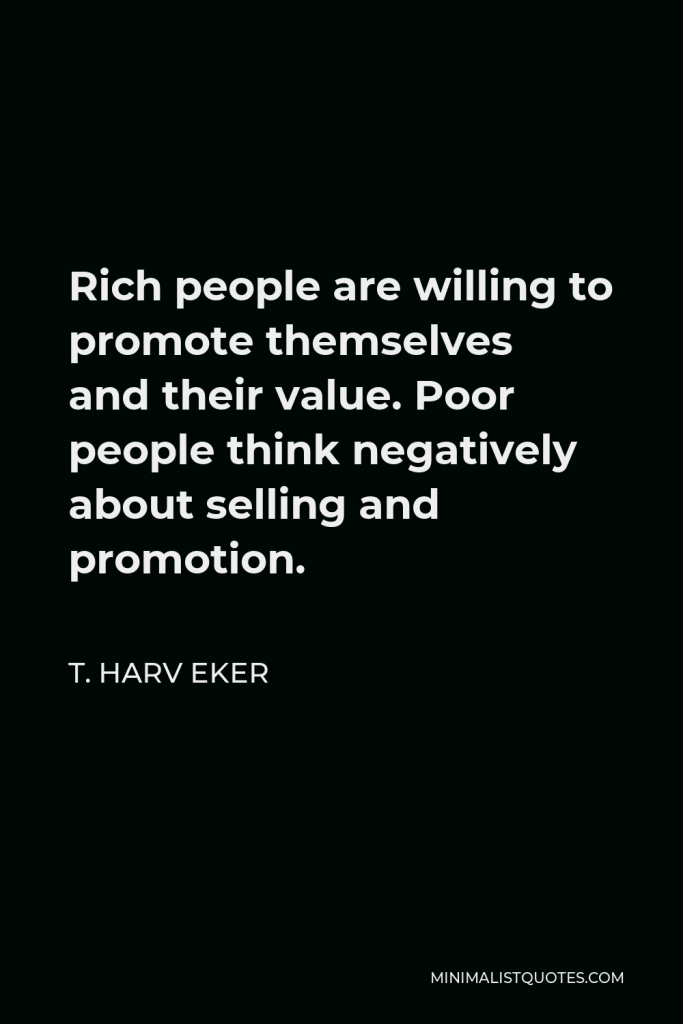

Rich people are willing to promote themselves and their value. Poor people think negatively about selling and promotion.
T. HARV EKER -





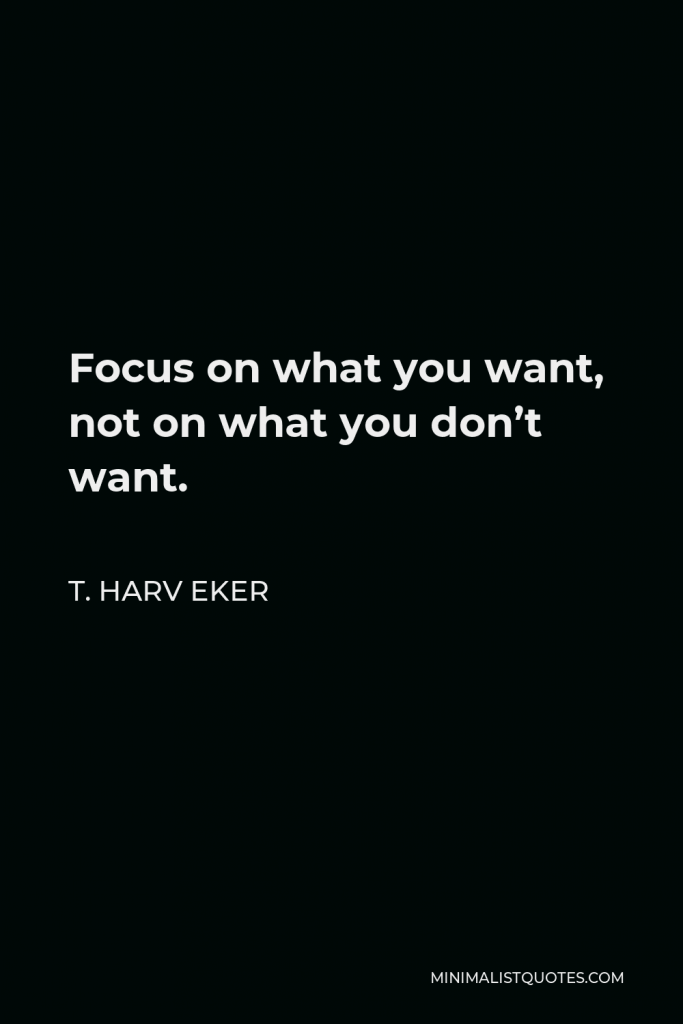

Focus on what you want, not on what you don’t want.
T. HARV EKER -





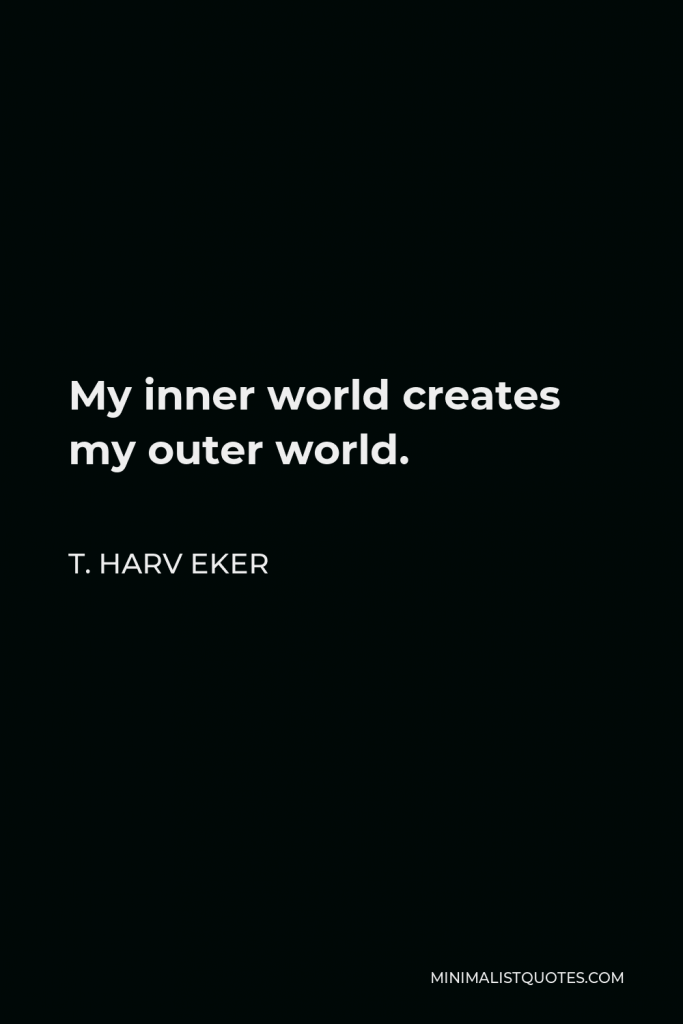

My inner world creates my outer world.
T. HARV EKER -





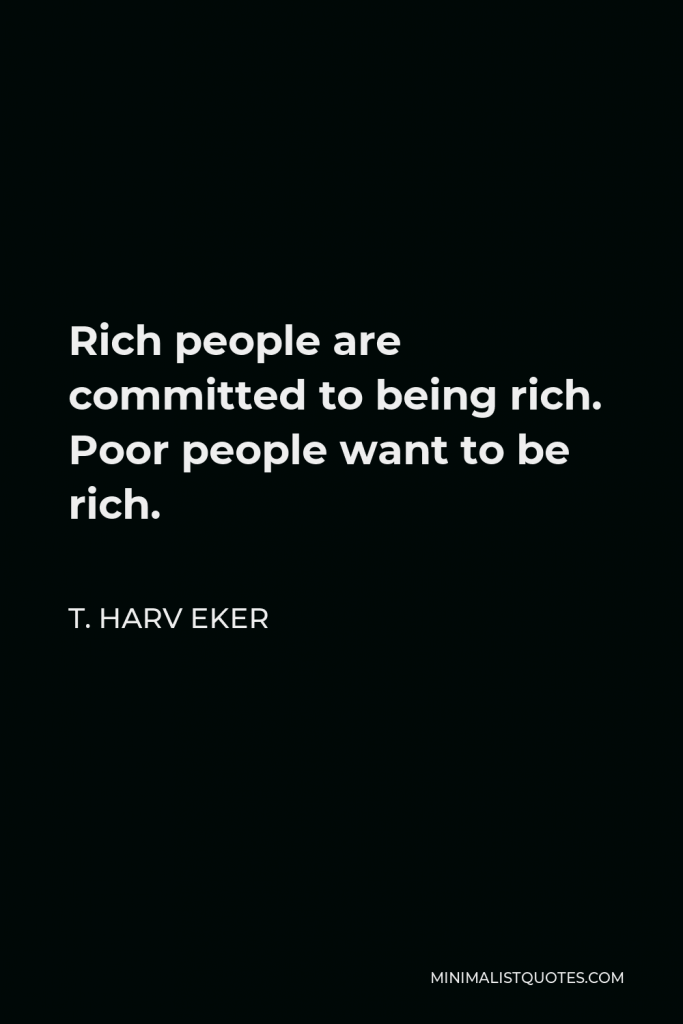

Rich people are committed to being rich. Poor people want to be rich.
T. HARV EKER -





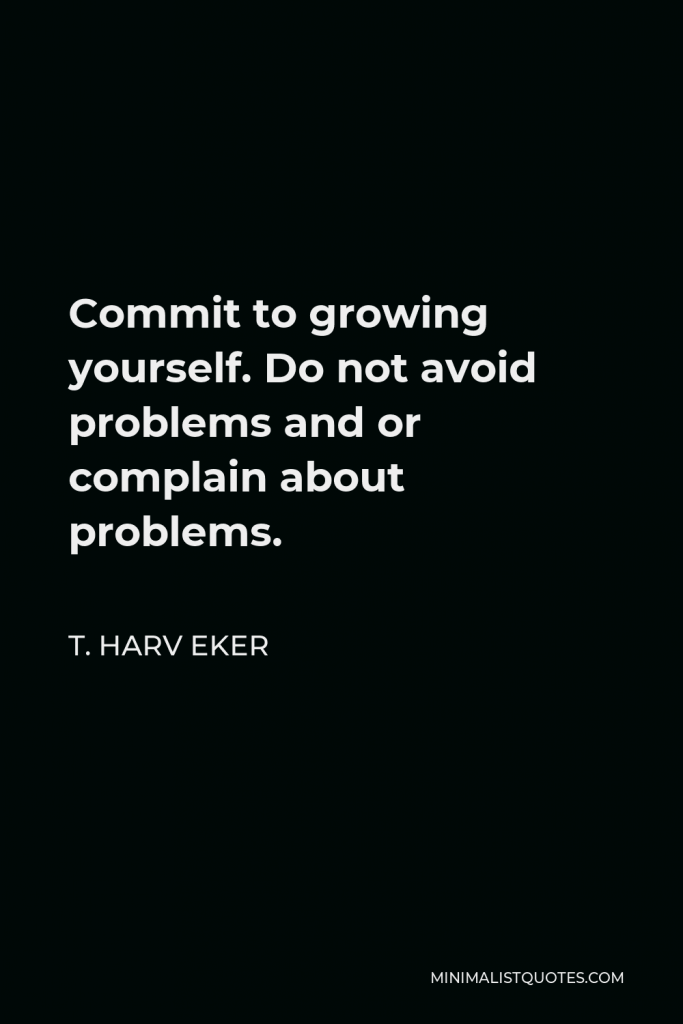

Commit to growing yourself. Do not avoid problems and or complain about problems.
T. HARV EKER

